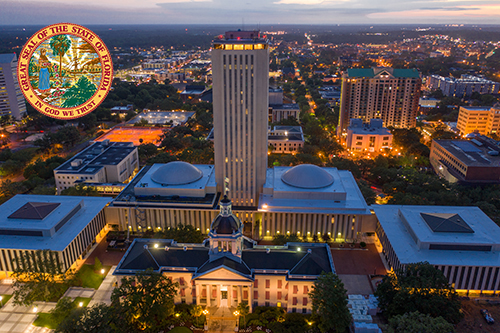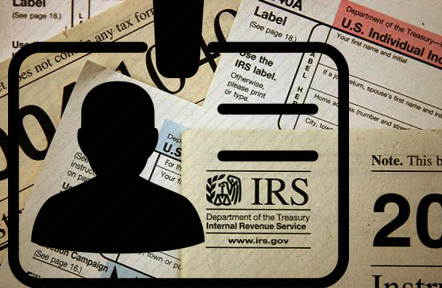DeSantis Drops in Florida Polls as the State Reels from Effects of Immigration Bill
 Florida, often known as the "Sunshine State," has long been a diverse and economically robust place. However, the passage of state Senate Bill 1718, a controversial bill aiming to crack down on illegal immigration, has cast a shadow over the state's economy and has had consequences not only for local businesses and residents, but also for Governor Ron DeSantis's political standing in Florida’s Republican presidential primary election polls. Republican politicians should take note.
Florida, often known as the "Sunshine State," has long been a diverse and economically robust place. However, the passage of state Senate Bill 1718, a controversial bill aiming to crack down on illegal immigration, has cast a shadow over the state's economy and has had consequences not only for local businesses and residents, but also for Governor Ron DeSantis's political standing in Florida’s Republican presidential primary election polls. Republican politicians should take note.
SB 1718, which was signed into law in May by Governor DeSantis, introduced stringent measures aimed at cracking down on unauthorized immigrants within the state. Among its provisions are measures that include:
- encouraging collaboration between state and local law enforcement agencies and federal immigration authorities
- harsh penalties for employers who hire undocumented workers
- mandates for employers to E-Verify the immigration status of individuals whom they hire
- requirements of hospitals to ask about the immigration status of individuals that they provide services to
- felony charges for people who transport unauthorized immigrants into the state
Ironically, the legislation’s E-Verify provisions contain a loophole that does not require businesses that use independent contractors to use E-Verify. This will encourage worker misclassification and embolden businesses that do not pay employment taxes or provide employee benefits to continue to utilize unauthorized immigrant labor while undercutting and underbidding businesses that hire and train employees and deduct and match taxes.
SB 1718's provisions regarding the verification of immigration status and penalties for transporting unauthorized immigrants have created a climate of fear and uncertainty for both business owners and workers. Many businesses, such as those in the agriculture, construction, and hospitality industries, have relied on immigrant labor to meet their workforce needs, especially in recent times of unprecedented workforce shortages and record low unemployment.
With the new law in place, some businesses are hesitant to hire immigrant workers out of fear of inadvertently violating the law. Meanwhile, immigrant workers, even those with legal status, have reportedly been leaving the state or deciding not to come to it as legal immigrant workers in mixed-status families fear felony charges for transporting unauthorized immigrant family members across state lines. This has led to increasing workforce shortages in various industries, affecting productivity and driving up the costs of construction, housing, food, and hospitality services for Floridian consumers. Viral videos have reportedly shown construction sites empty due to a lack of workers and bare grocery store shelves in Florida as some truckers have decided not to service the state.
Furthermore, following a recent dip in Florida tourism, the negative publicity surrounding SB 1718 appears to have discouraged some tourists from choosing Florida as their destination, adversely impacting this key sector of the state’s economy.
Governor Ron DeSantis, who once enjoyed strong support within the state, has experienced a notable drop in his approval ratings since the enactment of SB 1718.
In two Florida Republican presidential primary polls from early March, just before SB 1718 was filed, DeSantis boasted a healthy average of 55.5% support as the clear choice among voters for the state’s nomination. Following the passage of the bill, his poll numbers have declined to a mere average of 29.5% support in his own state amongst the same demographic based on the latest two polls on FiveThirtyEight that ended August 23 before the first Republican presidential debate.
While DeSantis positioned the bill as a step to bolster immigration law enforcement and safeguard Floridian jobs, a significant segment of the population, including members of his own party, perceive it as overly punitive, divisive, and bad for business and inflation.
Republican Rep. Rick Roth, who voted for the bill, admitted he was unprepared for the destabilization that it would cause.
“It's very dangerous for agriculture. We desperately need more legal workers and this is going to make it worse… I'm a farmer and the farmers are mad as hell. We are losing employees that are already starting to move to Georgia and other states,” said Roth.
As Florida grapples with the fallout from SB 1718, it remains to be seen whether DeSantis will reconsider the bill's provisions in response to mounting opposition and the harm it has inflicted on the state's economy.
Republican leaders and lawmakers looking to gain political standing would be wise to learn from this lesson and not follow in the DeSantis’ footsteps on immigration.
While illegal immigration is certainly something that lawmakers need to address, they should be wary of the adverse effects of haphazard policy like Florida’s SB 1718. Although policies that increase penalties against employers who employ unauthorized immigrants may help to reduce illegal immigration, they must also be coupled with improved pathways of legal immigration and an ID and Tax policy for unauthorized immigrants currently working in the US to earn legal status in order to avoid exacerbating workforce shortages and inflation.








